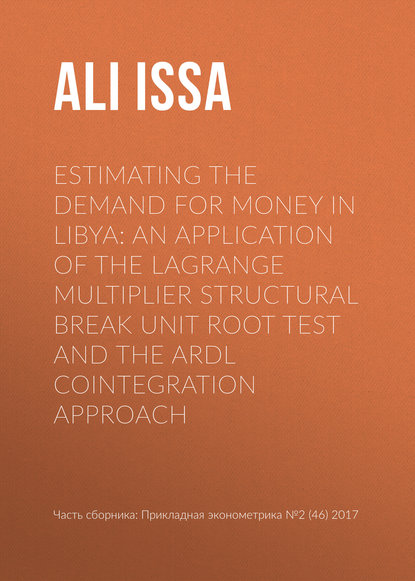Estimating the demand for money in Libya: An application of the Lagrange multiplier structural break unit root test and the ARDL cointegration approach
О книге
This paper examines the demand for money in Libya using annual data for the period 1970—2010 by applying the Autoregressive Distributed Lag (ARDL) cointegration approach and allowing for endogenous structural breaks in cointegration equation. The results based on the bounds testing procedure confirm that a stable, long-run relationship exists between demand for money and its fundamental determinants; namely, real income, inflation rate and nominal exchange rate. The empirical results indicate that there is a unique cointegrated and stable long-run relationship among real money demand (M1), real income, inflation rate, and nominal exchange rate. The real income elasticity coefficient was found positive while the inflation rate elasticity and nominal exchange rate were negative. This shows that depreciation of domestic currency decreases the demand for money. The results also reveal that after incorporating the CUSUM and CUSUMSQ tests, M1 money demand function is stable between 1982 and 2010.
Отзывы
0Чтобы оставить отзыв или проголосовать, необходимо авторизоваться







